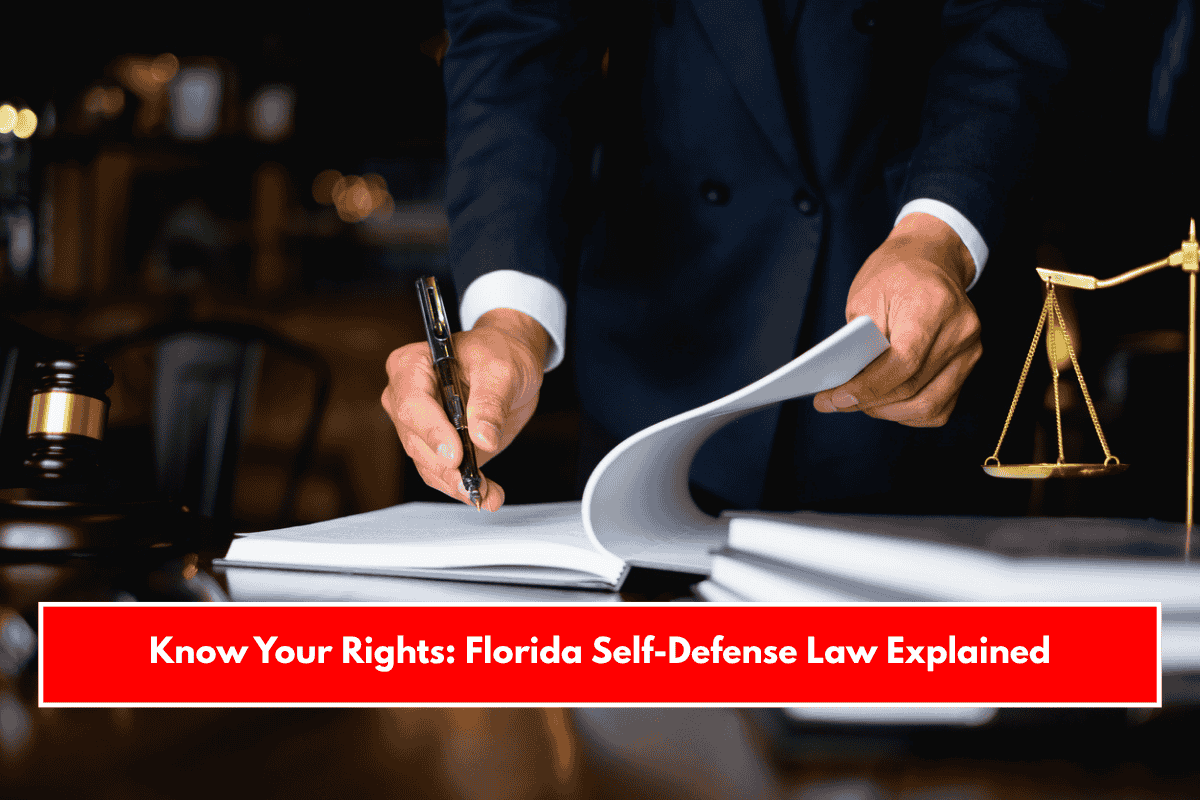Florida’s self-defense laws are among the most robust in the United States, empowering individuals to protect themselves, their loved ones, and their property from imminent harm. Understanding these laws is crucial for every resident and visitor to the state, as acting outside their boundaries can result in serious legal consequences.
Stand Your Ground Law: The Core Principle
At the heart of Florida’s self-defense framework is the “Stand Your Ground” law, primarily codified in Florida Statutes §§ 776.012 and 776.013. This law removes the traditional “duty to retreat” before using force in self-defense. If you are attacked in a place where you have a legal right to be—such as your home, car, or any public space—you are not required to attempt escape or retreat before defending yourself, even with deadly force if necessary.
When Can You Use Force?
Florida law distinguishes between non-deadly and deadly force:
- Non-deadly force may be used if you reasonably believe it is necessary to protect yourself or another from the imminent use of unlawful force.
- Deadly force is justified if you reasonably believe it is necessary to prevent imminent death, great bodily harm, or the commission of a forcible felony (such as assault, burglary, or kidnapping).
Key Requirements for Self-Defense
For a claim of self-defense to be legally valid in Florida, several conditions must be met:
- Imminent Threat: The danger must be immediate and unavoidable. You must genuinely and reasonably believe that harm is about to occur.
- Reasonable Belief: Your belief that force is necessary must align with what a reasonable person would think in similar circumstances. The courts will consider all relevant factors, including the nature of the threat and any alternatives available.
- Proportionality: The amount of force used must be proportional to the threat. Deadly force cannot be used in response to a non-lethal threat.
Castle Doctrine: Defending Your Home and Vehicle
Florida’s Castle Doctrine is an extension of self-defense law that applies specifically to your home, vehicle, or occupied dwelling. If someone unlawfully enters or attempts to enter your home or car, the law presumes you have a reasonable fear of imminent harm, justifying the use of force—including deadly force—without any duty to retreat. This presumption does not apply if the person entering is a lawful resident, a law enforcement officer performing official duties, or someone lawfully removing a child or grandchild.
Immunity from Prosecution
One of the most significant protections under Florida’s Stand Your Ground law is immunity from criminal prosecution and civil action if you lawfully use force in self-defense. If you can show your actions were justified, you may avoid arrest, trial, and civil lawsuits altogether. However, if there is evidence you were engaged in illegal activity at the time, or you provoked the incident, these protections may not apply.
Limitations and Exceptions
Self-defense is not absolute. You cannot claim self-defense if:
- You were engaged in criminal activity or using your home/vehicle to further an unlawful act.
- You provoked the violence, unless you clearly withdrew and communicated your intent to stop, but the other person continued the use of force.
- The person you used force against was a law enforcement officer lawfully performing their duties and properly identified themselves.
How Courts Evaluate Self-Defense Claims
When a defendant claims self-defense, the burden shifts to the prosecution to prove beyond a reasonable doubt that the use of force was not justified. Juries will consider whether a reasonable person in the same situation would have acted similarly.
Florida’s self-defense laws, including Stand Your Ground and the Castle Doctrine, provide strong legal protections for individuals facing imminent threats. However, these rights come with responsibilities and limitations.
Understanding when and how you can lawfully use force is essential to avoid criminal charges and ensure your actions are protected under the law. If you are involved in a self-defense incident, consulting a knowledgeable criminal defense attorney is highly recommended to safeguard your rights.
Sources:
- https://www.robertmalovelaw.com/library/florida-self-defense-law.cfm
- https://www.southfloridacriminalattorneysblog.com/understanding-self-defense-laws-in-florida-your-right-to-protect-yourself/
- https://daytonadefense.com/blog/self-defense-how-floridas-stand-your-ground-law-works/
- https://www.blakedorstenlaw.com/practice-areas/criminal-law/firearms-weapons-offenses-lawyer/florida-stand-your-ground-lawyers/
- https://www.bonderudlaw.com/blog/understanding-self-defense-laws-in-florida/















